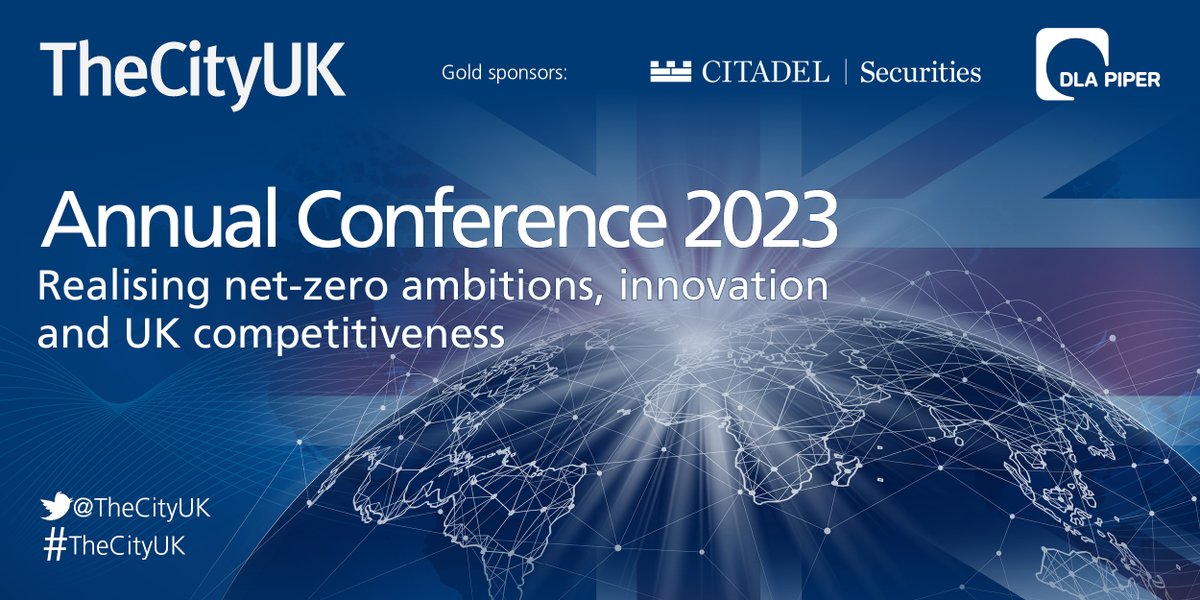Windsor MP takes part in panel discussion on AI, Fintech and Digital Innovation at TheCityUK Annual Conference
Windsor MP takes part in panel discussion on AI, Fintech and Digital Innovation at TheCityUK Annual Conference
To watch the panel, click here
Find out more about the conference on TheCityUK’s website
On Thursday 29th June, Adam Afriyie, MP for Windsor and Chair of the All Party Parliamentary Group (APPG) for Fintech, attended the annual conference of TheCityUK, at the Queen Elizabeth II Centre in Westminster, London. As part of the conference, Adam took part in the final of three panels held during the event, on the topic of Harnessing data and digital innovation.
TheCityUK is the representative body for the financial and related professional service sectors in the UK. Founded and led by the industry itself, they champion the sector’s success and contribution to the UK, as well as promoting policies to encourage the innovation, job creation, growth and dynamism that maximise the success of the British economy. Their annual conference brings together figures from industry, government and regulatory bodies in order to discuss various issues and developments taking place in the sector, and this year’s event focussed on the importance of financial and professional services to economic growth.
Adam took part in the third panel of the event: Harnessing data and digital innovation. This panel discussed the benefits of harnessing data, and how the UK can become a global hub for digital innovation whilst guaranteeing cyber security and privacy, with a particular focus on the emerging technology of Artificial Intelligence (AI). The panel was chaired by Kirsten Mycroft, Chief Privacy & Data Ethics Officer and International Chief Data Officer for BNY Mellon. The other panellists were Anthony Day, Partner at DLA Piper, Raj Paranandi, Chief Operating Officer for the Europe and APAC regions at MarketAxes and Maria Axente, Responsible AI and AI for Good Lead at PwC UK.
To start with, Adam was asked by the chair what steps he believed the Government needed to take in order to manage the benefits of AI in a responsible way. He responded that it is important that government does not try to over-regulate and ‘dictate’ the direction of the industry. Adam welcomed the approach taken so far by the Government to the development of AI in the UK, demonstrated by their White Paper on AI Regulation, which has sought to establish a broad framework for the industry, with 5 clear principles that should guide companies using and developing AI. He added that this marked a welcome contrast to the EU’s approach, which appears to be moving in a more managerial and heavily-regulated direction with their proposed ‘AI Act’ currently working its way through the European Parliament. He also welcomed the funding streams announced by the Government to support the development of the sector in the UK.
Later, Adam was asked what more could be done from a policy, legislative and regulatory perspective to drive digital innovation and develop the UK into a global FinTech hub. He responded that, in general, we should not look to government as the main force to ‘drive’ the growth and development of the AI industry, but rather the individual entrepreneurs, companies and investors who are the backbone of our economy. Instead, it is government’s role to establish the right regulatory environment to allow the market to develop organically. Adam added that the Government’s approach to the regulation of Fintech over the last few years was an example of a successful, permissive regulatory system, which has led to the development of a hugely successful and genuinely world-leading industry in the UK. He cited specifically the success of the FCA’s ‘regulatory sandboxes’ which have facilitated innovation in the sector, and which many other countries have looked at as an example to follow. His view was that the best legislative approach to dealing with problems in the Fintech or AI sectors was to respond in a pragmatic manner as and when these issues arrive.
In response to a further question about what firms using AI should do in the short-term without a clear legal or regulatory framework for the industry, Adam responded that to start with, businesses should stay focussed on their core goals, in terms of their product development and the market they are aiming to target. For now, firms; whether large or small, should seek to use the 5 principles of the AI White Paper as a guide to their operations, as this will give them a broad ‘ethical framework’ within which to operate, and will likely prepare them well for a formal regulatory system when it does eventually arrive.
Finally, responding to an audience question on the potential dangers of over-reliance on automated processes to decide outcomes, in this case, in the context of assessing student progress in schools, Adam pointed out that despite the development of new technologies, no matter how advanced, we need to remember that the ‘normal rules’ of politics, ethics and markets still apply. Therefore, we must ensure that, as a society, AI and other new technologies are compliant with the ‘ethical framework’ we have established through legislation such as the Equality Act and Race Relations Act. How much we should defer to AI and assistive technologies is an ethical dilemma, which we must grapple with to strike a sensible balance between automation and human judgement.
